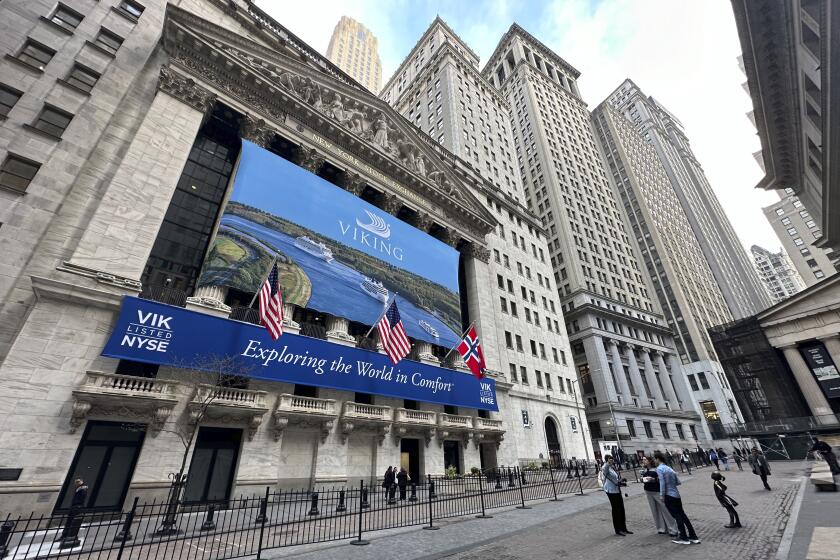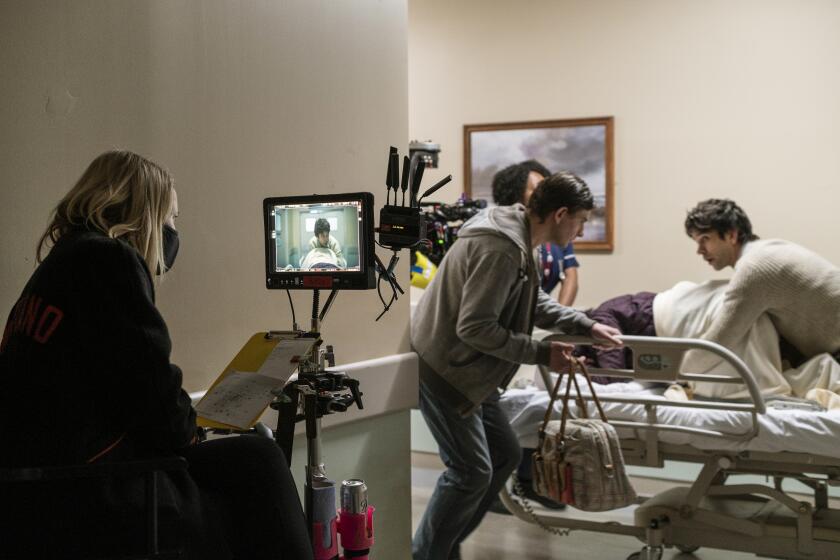Chiron Gets OK to Make Flu Vaccine
British health authorities Wednesday cleared the way for Chiron Corp. to resume flu vaccine production immediately, ending a five-month suspension that created temporary shortages in the U.S. last fall.
Although the factory in Liverpool still faces regulatory hurdles, analysts on Wall Street said they expected Chiron would provide shots to the United States later this year, easing worries about another season of scarcity.
The timing of the British action was important. Because it takes four to five months to produce millions of doses of vaccine from chicken eggs, Chiron needs to begin manufacturing its shots by early spring in order to reach the market by fall.
“All issues that have caused the concerns have been satisfied,” said Vicky Wyatt, a spokeswoman for the Medicines and Healthcare Products Regulatory Agency, the British counterpart to the U.S. Food and Drug Administration.
“We are happy to have them resume manufacturing of the vaccine.”
Chiron said it started producing vaccine as soon as the suspension ended in Britain. The Emeryville, Calif., company said it looked forward to returning to the flu shot business in a “meaningful way.”
Flu vaccine is Chiron’s biggest product, and last year’s fiasco cost the company $300 million in revenue.
“This is a significant accomplishment,” Chief Executive Howard Pien said in a statement.
Pien said the company remained focused on resolving all outstanding problems at the Liverpool plant. Chiron must provide weekly progress reports to British regulators, and the FDA must sign off on plant improvements.
Jesse Goodman, director of the FDA division that oversees vaccine companies, said in a statement that the restoration of Chiron’s license in Liverpool “was an extremely important milestone in Chiron’s efforts to supply influenza vaccine for the U.S. market.”
Goodman said that “work remains” and that the FDA and its British counterpart would continue to monitor Chiron. The FDA will conduct an inspection after “all critical stages of manufacturing are in full swing and needed corrective actions can be fully evaluated,” he said.
Neither Chiron, the FDA nor British authorities provided details on what remedial tasks still remain for Chiron.
In October, British regulators stopped Chiron from shipping 48 million doses of Fluvirin vaccine to the United States because of sloppy manufacturing practices and evidence of bacterial contamination in the Liverpool factory.
Chiron had been slated to supply about half of the anticipated flu vaccine supply to the United States. Public health authorities rationed scarce flu shots in the fall, resulting in long lines, so that patients with the highest risk of becoming seriously ill from the flu could receive the vaccine. The flu season so far has turned out to be relatively mild, however, and the shortages have largely abated.
Aside from its problems in Liverpool, Chiron is under investigation by the Securities and Exchange Commission and the Justice Department for matters related to the factory shutdown. Investigators are believed to be looking into whether Chiron misled investors about its ability to provide vaccine. Last week, the head of Chiron’s vaccine business resigned.
As Chiron prepares to restart its U.S. flu vaccine business, it is likely to face stiffer competition. Two additional vaccine manufacturers are getting ready to enter what had been a two-company market shared by Chiron and Sanofi-Aventis, which is based in France.
British drug maker GlaxoSmithKline is testing its flu vaccine in the United States. It plans to seek FDA approval of its shots this year and supply 10 million to 15 million doses, about 15% of the total supply anticipated for the U.S.
“We have every hope of becoming a full-fledged supplier this fall,” said Glaxo spokeswoman Danielle Halstrom.
ID Biomedical Corp., a Canadian company, also is eyeing the U.S. market.
Several analysts said they expected Chiron to supply 35 million doses of flu vaccine this fall, less than the 52 million Chiron had expected to ship last year.
Thomas Shrader, an analyst with Harris Nesbitt in New York, said the Liverpool plant “comfortably” made 35 million doses in the past.
Regulators have said Chiron’s efforts to boost production in Liverpool played a role in its manufacturing problems.
“Whether or not that was the cause, I think the company will have to work a little slower,” Shrader said.
In Nasdaq trading Wednesday, Chiron shares closed at $37.69, up $2.27, or 6.4%.
*
(BEGIN TEXT OF INFOBOX)
Safety issues at Liverpool plant
In the last few years, safety issues have dogged the different owners of the Liverpool, England, vaccine facility where the tainted Chiron flu vaccines were made.
* October 1999: The U.S. Food and Drug Administration warns Medeva Pharma that the conditions at the plant do not meet agency standards.
* October 2000: The British government recalls millions of polio vaccine doses made at the facility, then owned by Celltech Chiroscience, because they may be contaminated with proteins tied to mad cow disease. PowderJect Pharmaceuticals acquires Celltech Chiroscience and takes over the Liverpool plant.
* May 2003: Chiron agrees to buy PowderJect and enters the flu vaccine business.
* June 2003: Inspectors from the FDA find bacterial contamination at the Liverpool facility.
* June 23, 2004: Chiron says it will make 20% more vaccine doses for the 2004-05 flu season.
* Aug. 26, 2004: Chiron announces that some doses had been contaminated at its Liverpool factory and that the shipment of 50 million shots would be delayed.
* Oct. 5, 2004: British regulators suspend Chiron’s license to make the vaccine at the Liverpool facility for three months. Because of the shutdown, the company announces it will not release any vaccine doses for the current flu season.
* Wednesday: Regulators in Britain clear the Chiron facility for resumed production.Sources: News articles, Times research
Compiled by Times librarian John L. Jackson






